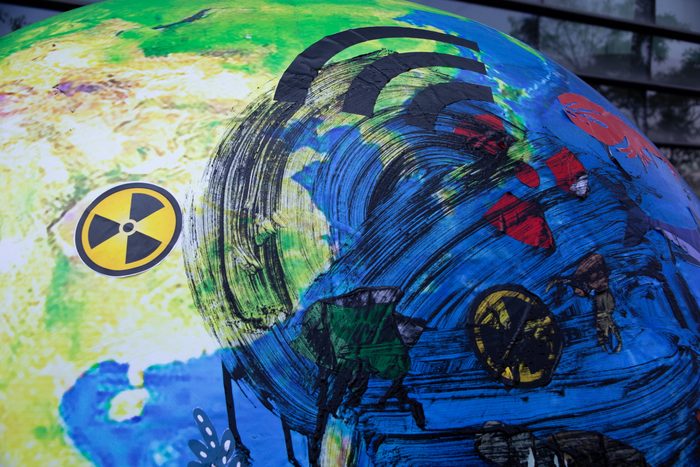Hello, this is Nicolas, with a (longer) special edition of our science and tech newsletter, as all eyes are on the highly awaited Biden-Putin summit taking place today in Geneva.
Ahead of the meeting, cybersecurity expert Steven Meyer asks whether the US president will be able to pressure his Russian counterpart on cybercrime.
Then, we turn to today’s agenda, while dissecting what to expect from the Geneva summit. And we finish off with a deep dive into the city’s historic role in diplomatic talks. |
|
Science & Technology News
|
|

Credits: EPA/RITCHIE B. TONGO
|
|
👨💻🔫 Will Biden pressure Putin on cybercrime?
Since the election of President Joe Biden, the United States has been targeted by several cyberattacks – most of them originating in Russia. As Biden meets with his Russian counterpart Vladimir Putin at the Villa La Grange, it is time for him to flex his muscles regarding cybercrime – but there is little hope of him succeeding, says CEO of cybersecurity firm ZENDATA Steven Meyer.
Geneva Solutions (EN)
|
|
|
A closer look at the Biden-Putin summit
|
|

Credits: KEYSTONE/Pool/Martial Trezzini
|
|
|
Anticipatory reads by GESDA
|
|

Credits: EPA/JEON HEON-KYUN
|
|
“We are entering a frightening time for humanity.”
So ends a recent article in Axios (read below), covering a new report by a British non-profit called the Centre for Long-Term Resilience. Its author, Toby Ord from Oxford University, estimates “the chance that we will experience an existential catastrophe over the next 100 years is one in six, the equivalent of playing Russian roulette with our future.” All in all, he calls for the creation of “chief risk officers” among nations, empowered to examine the development of technologies with an eye toward what could go very wrong.
One could see things more positively and, when looking at the upcoming science and technology advances, also mention opportunities instead of only risks – without evading the latter. The anticipation of possible scientific breakthroughs, keeping in mind the need to have most people on this planet benefit from them, should be given as much interest as pointing to the threats. That is the main focus area of the Geneva Science and Diplomacy Anticipator GESDA.
– Olivier Dessibourg
|

This selection is proposed by the Geneva Science and Diplomacy Anticipator
GESDA, working on
anticipating cutting-edge science and technological advances to develop innovative and inclusive
solutions for the
benefit of the planet and its inhabitants.
|
|
GS news is a new media project covering the world of international cooperation and development. Don’t hesitate to forward our newsletter!
Have a good day!
|

|
|
Avenue du Bouchet 2
1209 Genève
Suisse
|
|
|
| |











